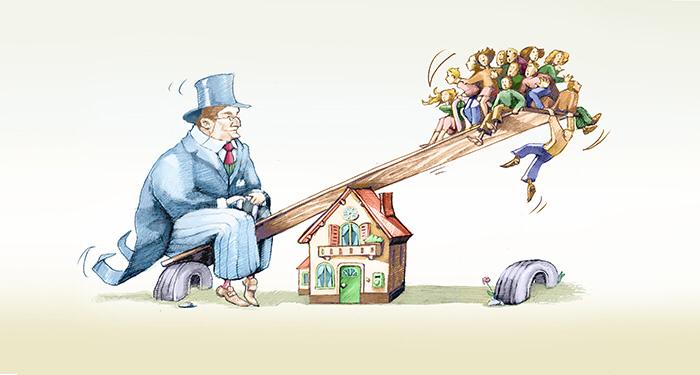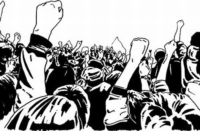Part 2
Last month I wrote an article on the importance of political theory. In that article I explained that it is not enough to read the Communist Manifesto to learn about Marxism properly but that you must examine different points of Marxism.
In this article I will examine the economic and social relations between the ruling class and the working class through a Marxist framework to show why we must have an understanding of Marxism and how it helps us understand the world around us.
The ruling class rule through ownership of the means of production and the ownership of land. They use this ownership to push the working class into poverty. The landlords who run the country continue to raise the price of renting accommodation, with an average of €2,044 a month in Dublin. The cost of living continues to rise, with an estimated €3,232 for a family of four in Dublin. This, however, doesn’t include the cost of renting. The business owners who continue to raise prices but keep wages at the minimum—that is, the minimum with which a worker can live—continue to increase profits.
Through Marxism we learn two important terms: real wages and surplus value. These are important, as they show how profits increase. Real wages are the buying power of wages, i.e. the real value of the money you’re paid. Surplus value is the value of the work you do that the business owner profits from.
For example, for the work for 1 hour you are paid €10.50, but if the work you do in that hour is valued at €21 the business owner has made a profit of €10.50. You need to work 2 hours to afford what you create in 1 hour. But if the business owner increases the price of what you have created, if a new variable is added, such as inflation, the real wages drop. Your 2 hours of work to buy 1 hour’s value are no longer enough.
Real wages also decrease if rent is increased. As the cost of living rises but wages stagnate, the workers are left to be evicted. Those who are unemployed make up what’s known as the reserve army of labour. For the bosses they are people to point to and say, “I can replace you with any of them.”
Unemployment, homelessness and poverty are not an accident of a flawed system but a need for capitalism to continue to exploit workers. If everyone was employed, profits would go down, as wages would have to be paid, supply would increase, and overabundance would cause a drop in demand. So that profits can continue to grow, demand must be greater than supply. This can be applied to jobs too. A greater demand for jobs creates division and competition among the working class and allows the ruling class to continue to profit from the surplus value of labour.
This is the answer to the question from my previous article, “Why does my boss make more than me when I do all the work?” Your surplus labour is being profited from.
This is Marxism applied to the real world, the importance of political theory and understanding of Marxism—but also the importance of Marxism as a philosophy of the working class, analysing the social and economic factors at play in a capitalist society. This answers many questions plaguing the working class and guides how we fight against this exploitation in organisations such as parties and unions.
Read Part 1 here






